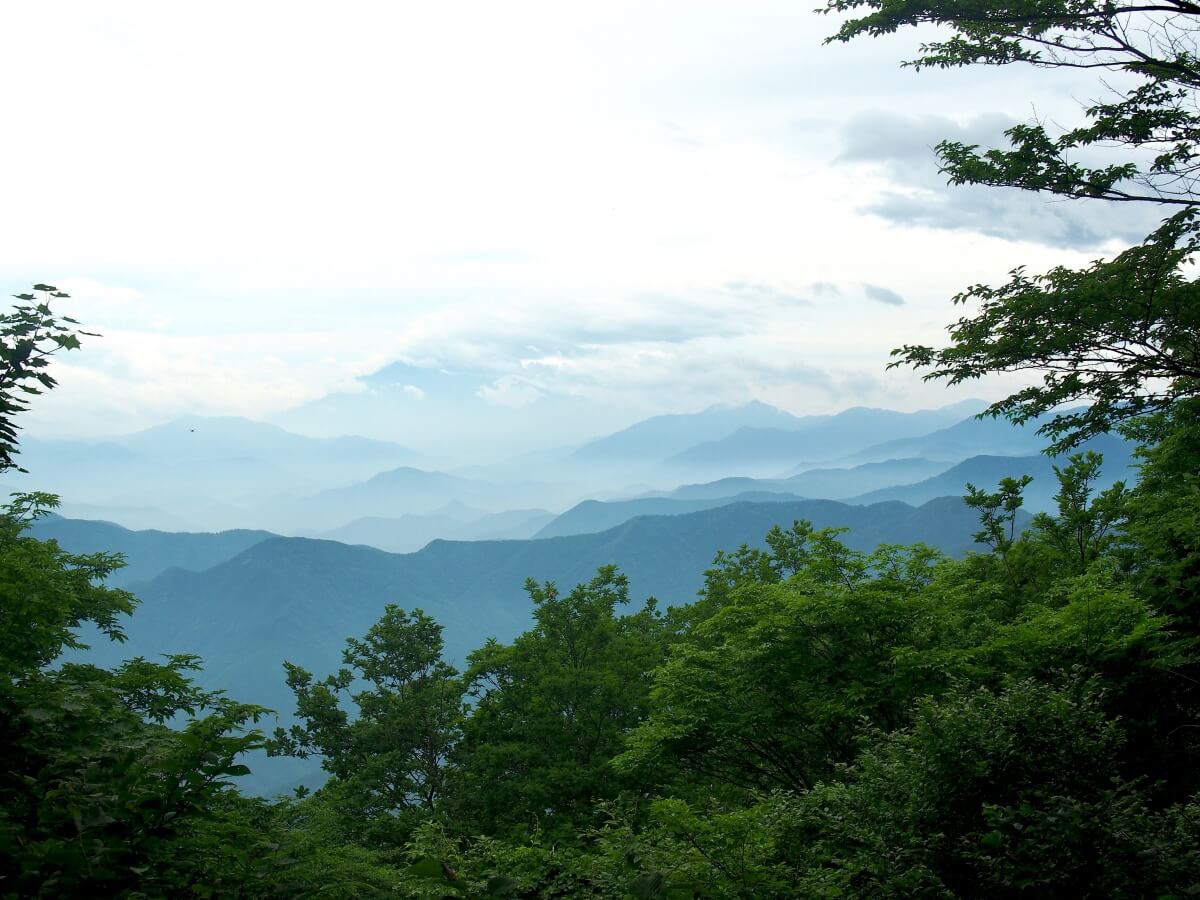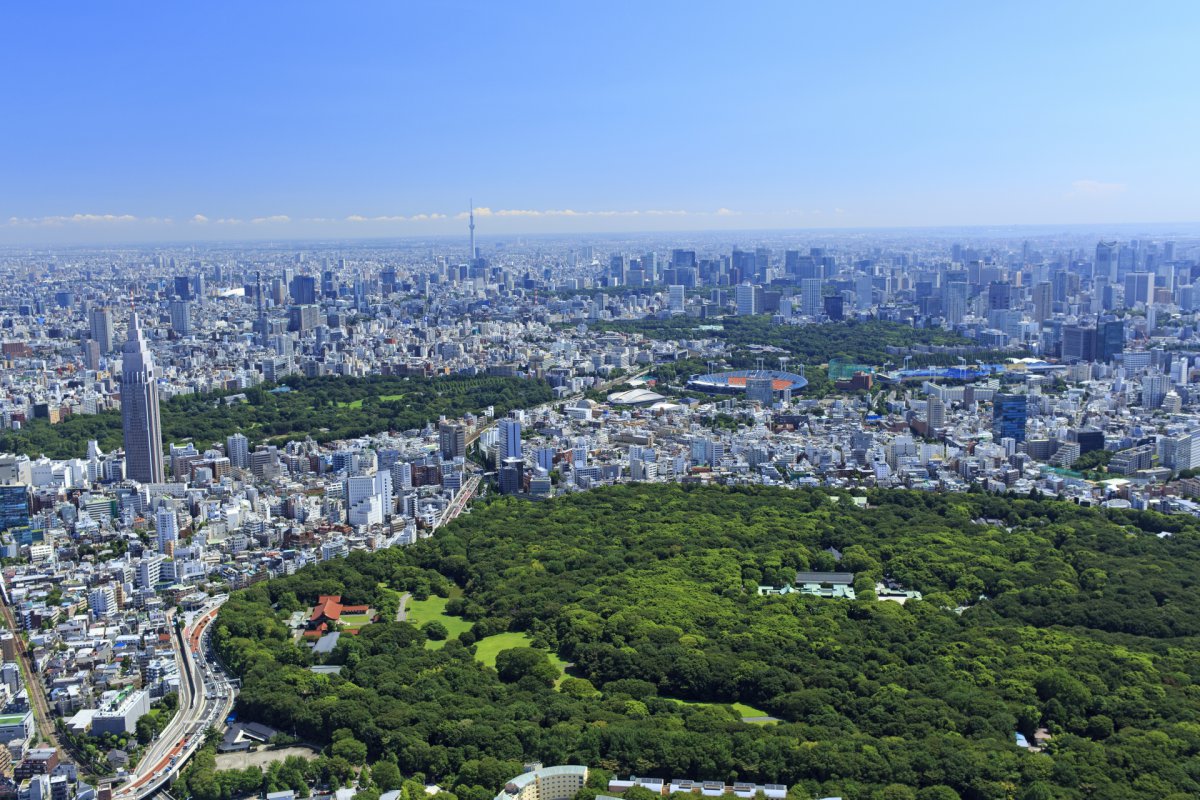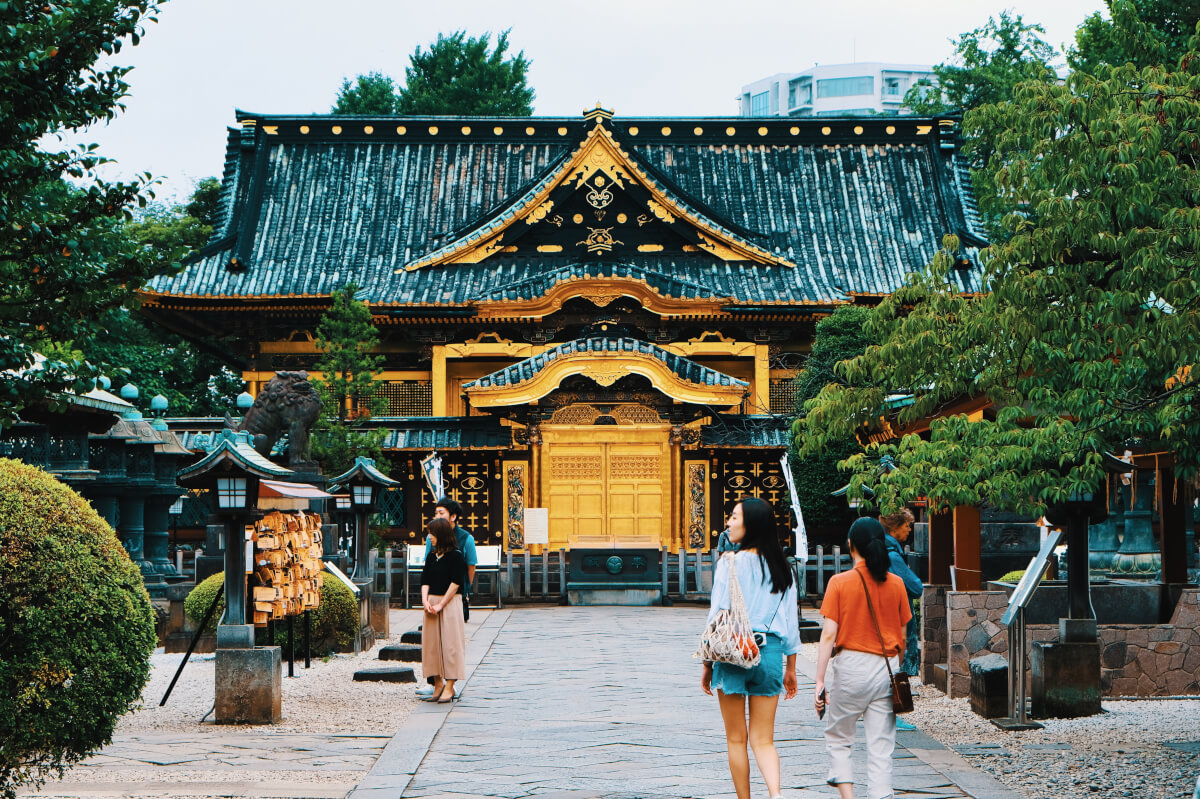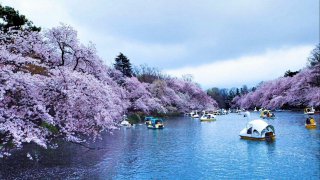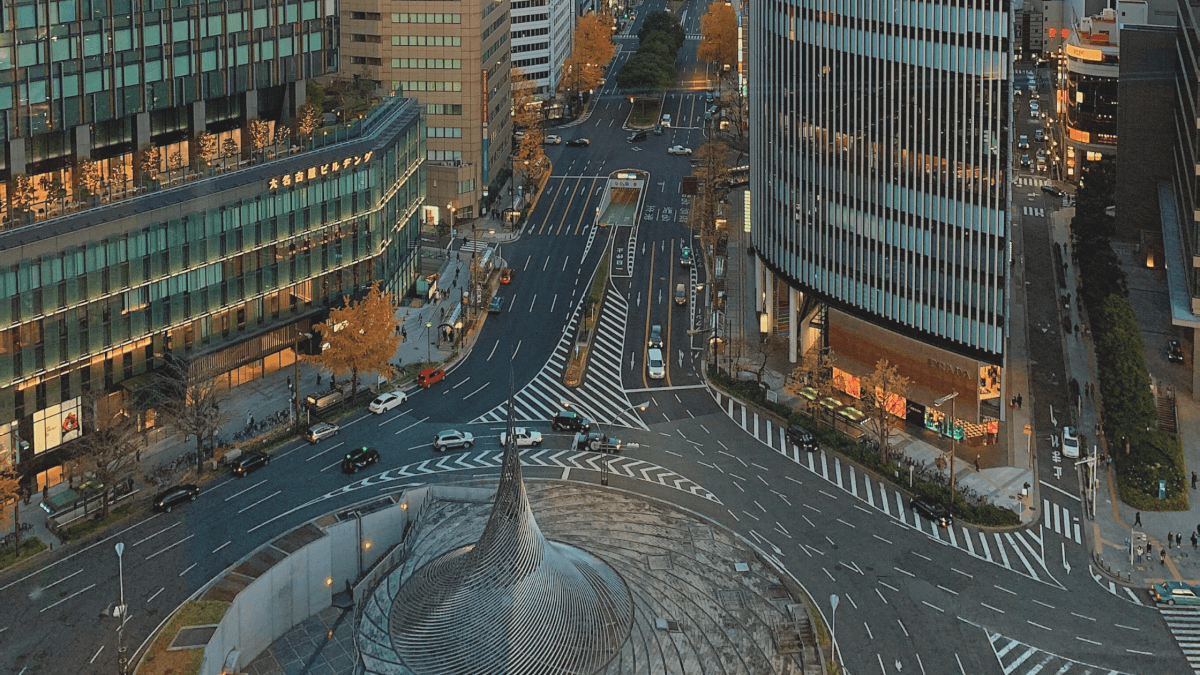Even though Tokyo is one of world’s busiest and biggest cities with its crowded places, many skyscrapers, and large public transportation network, the city also has its fair share of green park areas which provide people with the opportunities to escape from the bustling city life. Besides the calming greenery and a place to relax, often, the parks offer many other great places such as interesting museums and beautiful shrines, as well. In this article we introduce some of the best parks in Tokyo to alternate your busy sight seeing time with some peaceful nature!
If you are looking for some other nature spots in Tokyo, read our blog 10 recommended nature spots in Tokyo!
1. Shinjuku Gyoen
Shinjuku Gyoen is a large park located near Shinjuku Station. The origin of Shinjuku Gyoen dates back about 400 years to the Edo Period. The local feudal lord at the time built a large residence on the land where Shinjuku Gyoen is now located. Later the land came under the ownership of the government. After becoming a botanical garden, ownership changed to the Imperial family in 1906. The park was largely destroyed during World War II, but was rebuilt and reopened to the public in 1949.
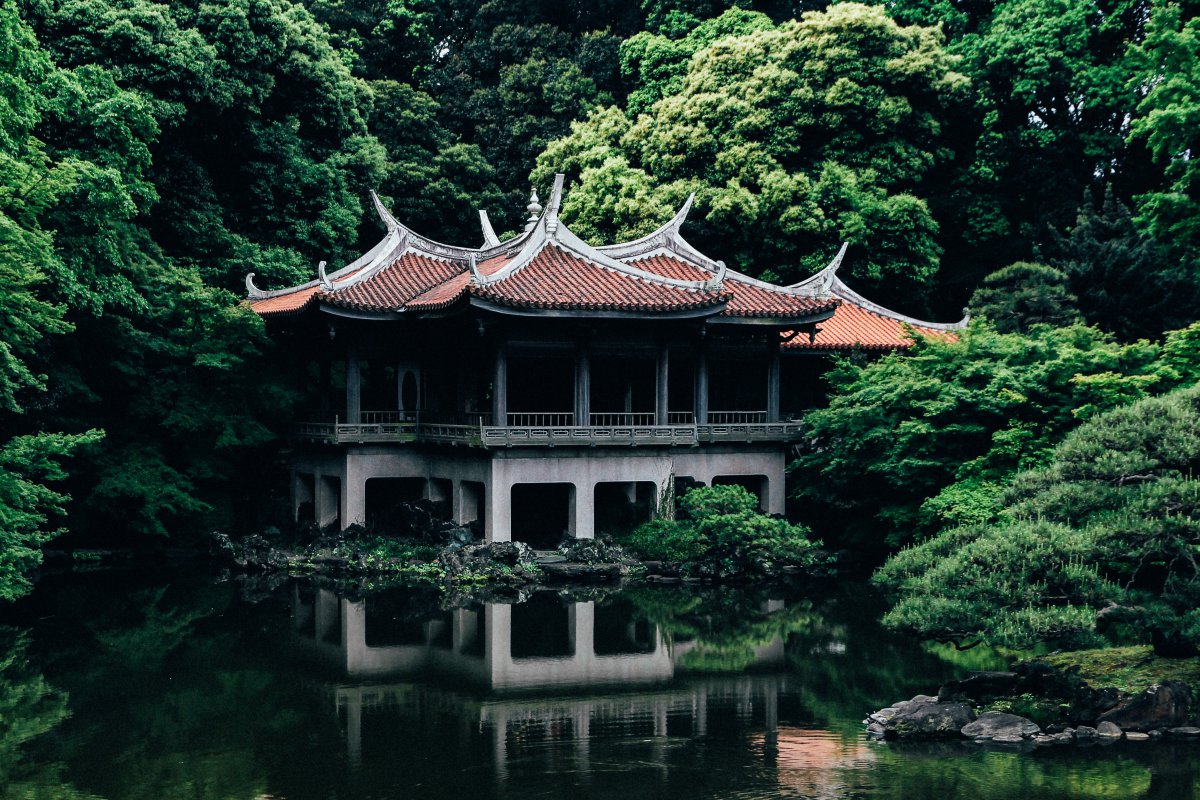
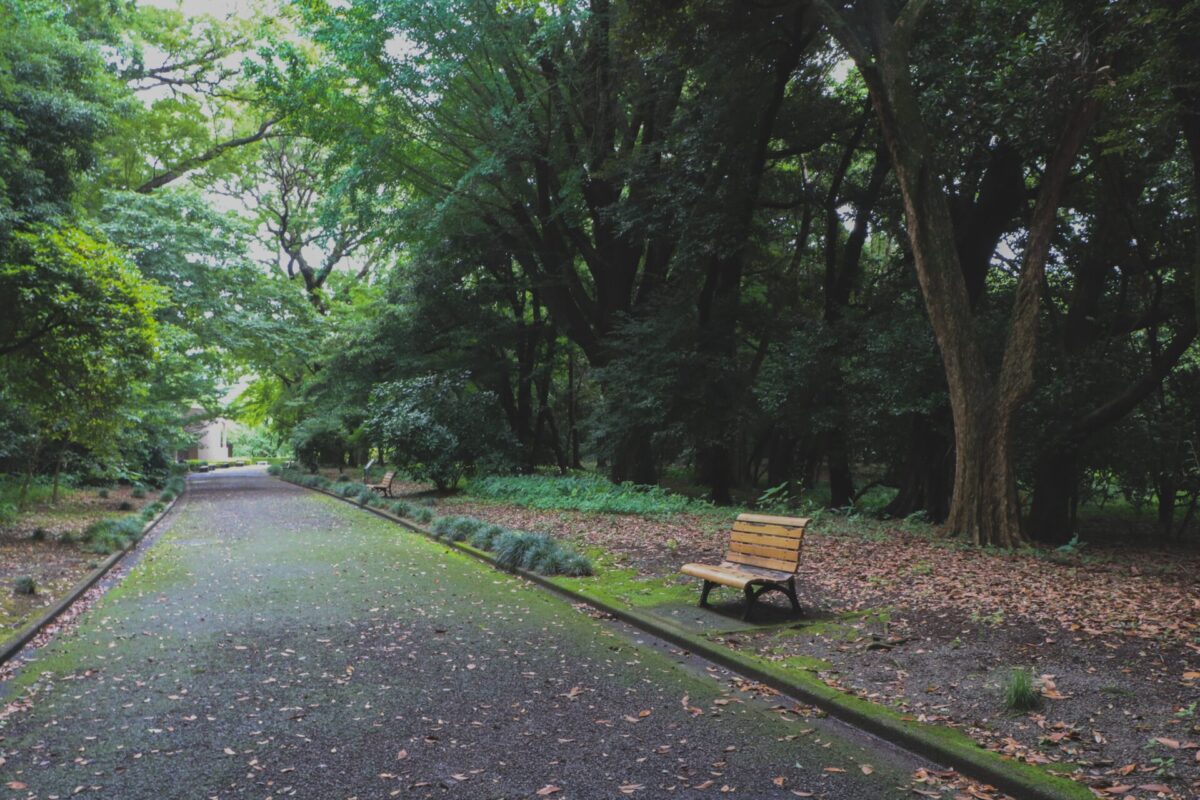
Shinjuku Gyoen features Japanese, English, and French themed gardens, and over 10,000 trees including cherry, maple, roses and camellias. Many people visit the park all year round to relax on a large lawn area and to enjoy seasonal flowers.
Shinjuku Gyoen
9am – 4pm Oct. 1st – Mar. 14
9am – 5.30pm Mar. 15 – Jun. 30 & Aug. 21 – Sep. 30
9am – 6.30pm Jul. 1st – Aug. 20
*closed on Monday
Admission ¥500
How to go to Shinjuku Gyoen
The park has three access gates:
- Shinjuku Gate – 10 minute walk from JR Shinjuku station, New South Exit. Or 5 minute walk from Shinjukugyoenmae Station.
- Okido Gate – 5 minute walk from Shinjukugyoenmae Station.
- Sendagaya Gate – 5 minute walk from JR Sendagaya Station.
2. Ueno Park
Ueno Park is a large public park located in Taito ward in central Tokyo. The park was originally part of Kaneiji Temple, which used to be one of the city’s largest and wealthiest temples. In 1873, the temple grounds were converted into one of Japan’s first Western style parks and opened to the public. At the southwestern end of the park, you can find Shinobazu Pond, one of many reminders of Kaneiji Temple’s former grandeur. A temple hall called Bentendo stands on an island in the middle of the pond, and some parts of the pond are covered with lotus flowers, which is associated with purity and beauty in Buddhist culture. It is very relaxing to take a walk around the pond along the walking trails.
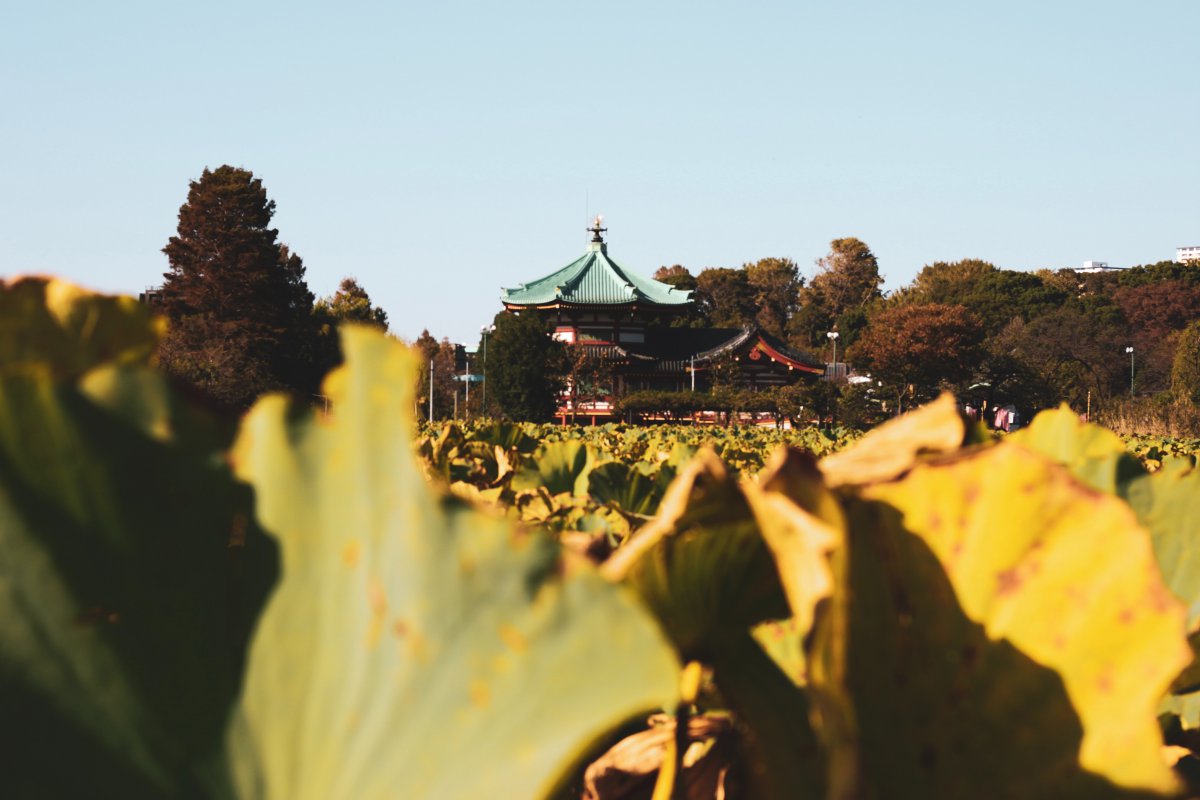
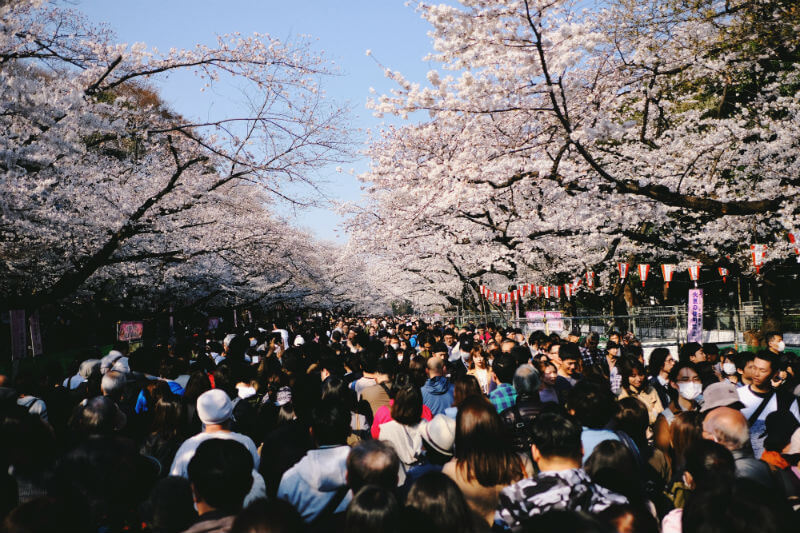
Ueno Park is also famous for the many museums including the Tokyo National Museum, the National Museum for Wester Art, the Tokyo Metropolitan Art Museum, and the National Science Museum. Ueno Zoo, Japan’s first zoological garden and known for housing panda bears, is also situated in Ueno Park.
In addition, from late March to early April, the park is packed with people for cherry blossoms. There are more than 1,000 cherry trees lining its central pathways, and many people bring drinks and food to enjoy hanami – cherry blossom viewing.
How to go to Ueno Park
Ueno Park is located next to Ueno station, follow signs for Park Exit.
3. Showa Kinen Park
Showa Kinen Park, located in Tachikawa City, was established in 1983 as a part of the 50th-anniversary celebration of the reign of Emperor Hirohito who was the emperor of the Showa Period. Within the massive area of the park – it is the largest park in the Tokyo area – you will find a wide variety of natural spaces, seasonal flowers, museums and recreational facilities.
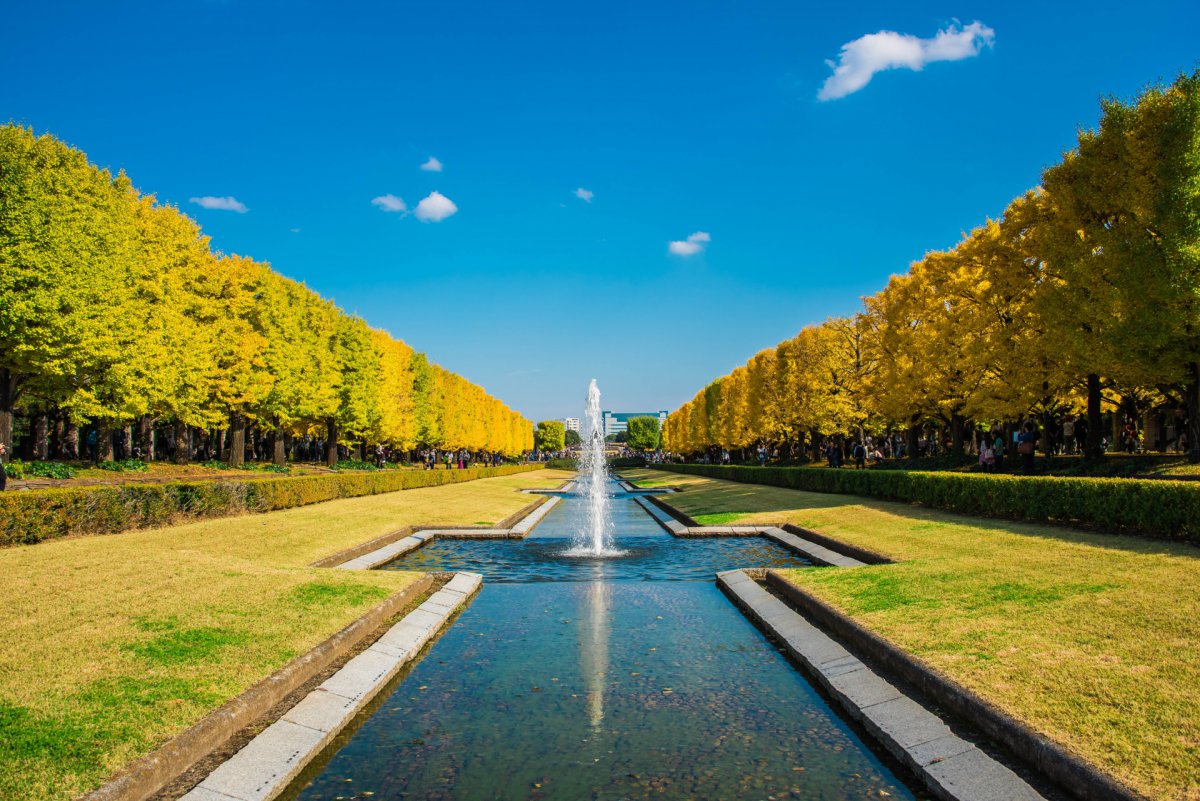
The park features spacious lawns where you can picnic and relax, woodlands with walking trails, Japanese and Western style gardens, and a large pond. The Emperor Showa Memorial Museum is located on the right side of the park and exhibits photos and personal belongings of the emperor. You can walk around the park on foot but you can also rent a bicycle (¥420 – 3 hrs, ¥530 – full day), or you can use the regular in-park “road train” service (¥310 / ride).
Showa Memorial Park
9.30am – 5pm Mar. – Oct.
9.30am – 4.30pm Nov – Feb
*9.30am – 6pm Apr. – Sep. on Saturdays, Sundays and Holidays
Admission ¥450
How to go to Showa Kinen Park
One of the entrances of the park is located just outside Nishi-Tachikawa station. Alternatively, you can reach the park in a 20 minute walk from Tachikawa Station.
4. Yoyogi Park
A stone’s throw away from the crowded Shibuya scramble crossing, Yoyogi Park is a haven of peace right in the heart of Tokyo. Yoyogi Park is a popular gathering place for many people who come there to relax, play music or do sports including martial arts, yoga, or dancing. The park is also a great place for jogging, picnicking, and resting after a long walk in the nearby Shibuya and Harajuku area. On the north side of the park you can visit the famous Meiji Jingu Shrine, one of the most important Shinto shrines in Japan!
Recommended tour: Tokyo 1-Day Highlights Private Walking Tour (8 hours)
Before becoming a city park in 1967, Yoyogi Park served as the site of the Olympic Village for the 1964 Tokyo Olympics, and before that, as a residential area for US military personnel.
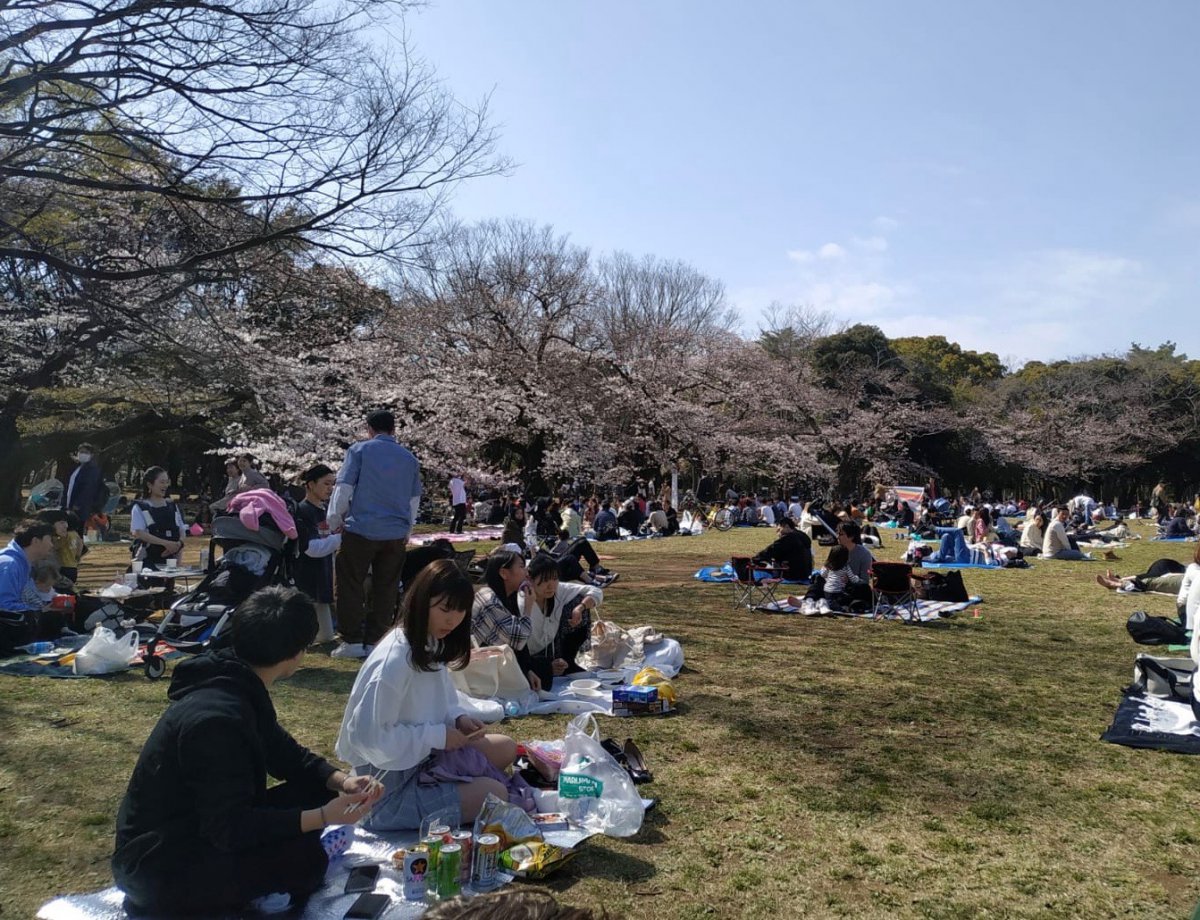
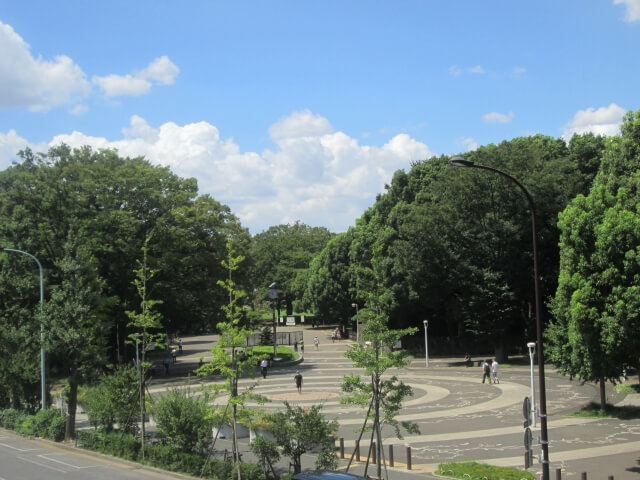
How to go to Yoyogi park
Short walk from JR Line Harajuku station, Yoyogi Koen station and Meiji-jingumae station.
5. Kasai Rinkai Park
Located by Tokyo Bay in Edogawa ward, just across the Edogawa River from Tokyo Disney Resort, Kasai Rinkai Park has one of the largest grounds in Tokyo at 810,000m2. The park was established to preserve the environment of Tokyo Bay in 1989.
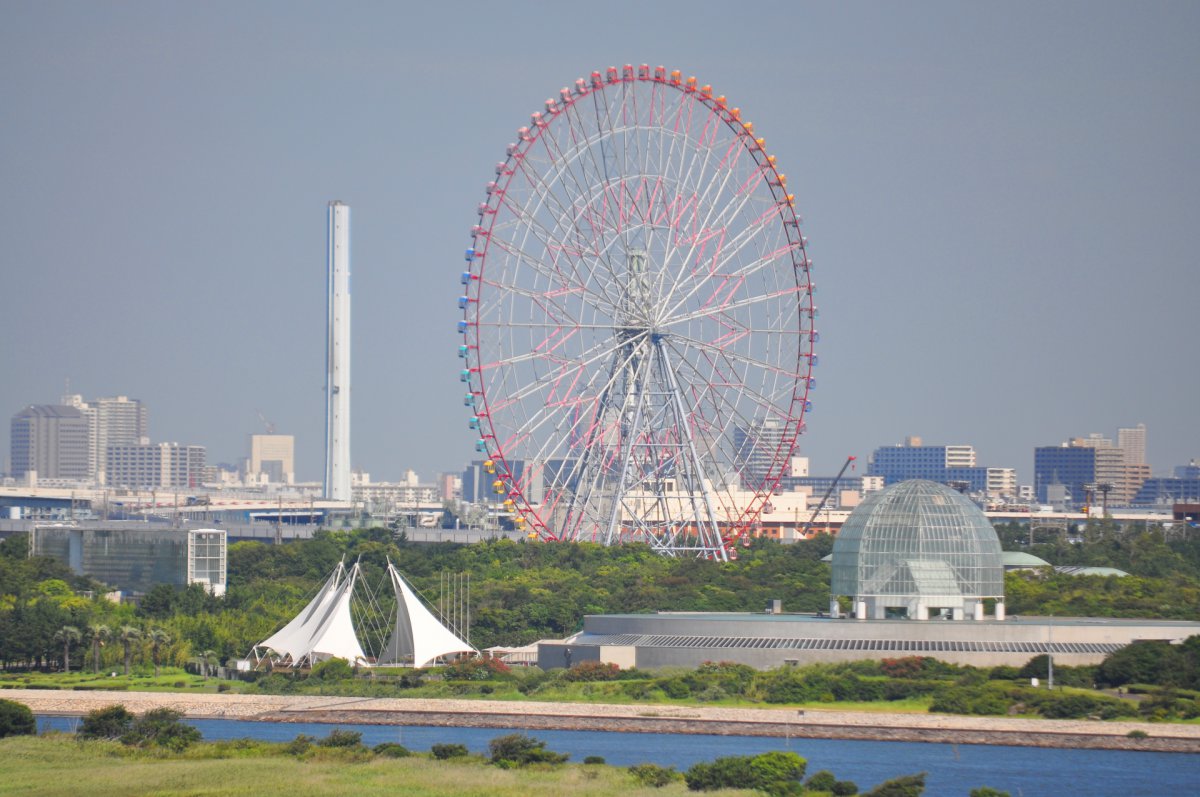
The park features large lawn areas, beaches, an aquarium, a ferris wheel, and an observation building. The Diamond and Flowers Ferris Wheel is the landmark of Kasai Rinkai Park. Its height of 117 meters is the second tallest Ferris wheel in Japan and offers stunning views of Tokyo Bay, Tokyo Disney Resort, and even Mount Fuji on a clear day. In addition, the park is a popular bird watching spot: about one third of the park is designated as a sea bird sanctuary.
10am – 8pm
10am – 9pm (weekends and holidays)
Free admission
How to go to Kasai Rinkai Park
Located next to Kasai Rinkai Koen Station.
6. Inokashira Park
Located in the Mitaka City, a short trip west of Shinjuku, Inokashira Park is loved by the locals for its plentiful nature and relaxing atmosphere and is famous among tourists for housing the Ghibli Museum which is the only official Ghibli themed museum in the world.
In spring, many people visit the park for cherry blossom viewing. There is a large pond in the middle of the park and many people enjoy paddling boats on clear, warm days. Inokashira Park also has small animal houses (¥400 admission). The main zoo houses lovely animals such as monkeys, penguins, squirrels and guinea pigs. The smaller zoo has several species of birds.
How to go to Inokashira Park
- 5 minute walk from Kichijoji station.
- 1 minute walk from Inokashira Koen station.
7. Hibiya Park
Hibiya Park is located within easy walking distance from the Imperial Palace and Ginza in the heart of the city. The park owns two large Western-style flower gardens, a large fountain, two outdoor music domes, a small park museum, a library, several restaurants and a few stores selling refreshments.
Throughout the year, there are events and festivals in the park such as outdoor performances at the music halls, the annual Oktoberfest carnival, and the Christmas market.
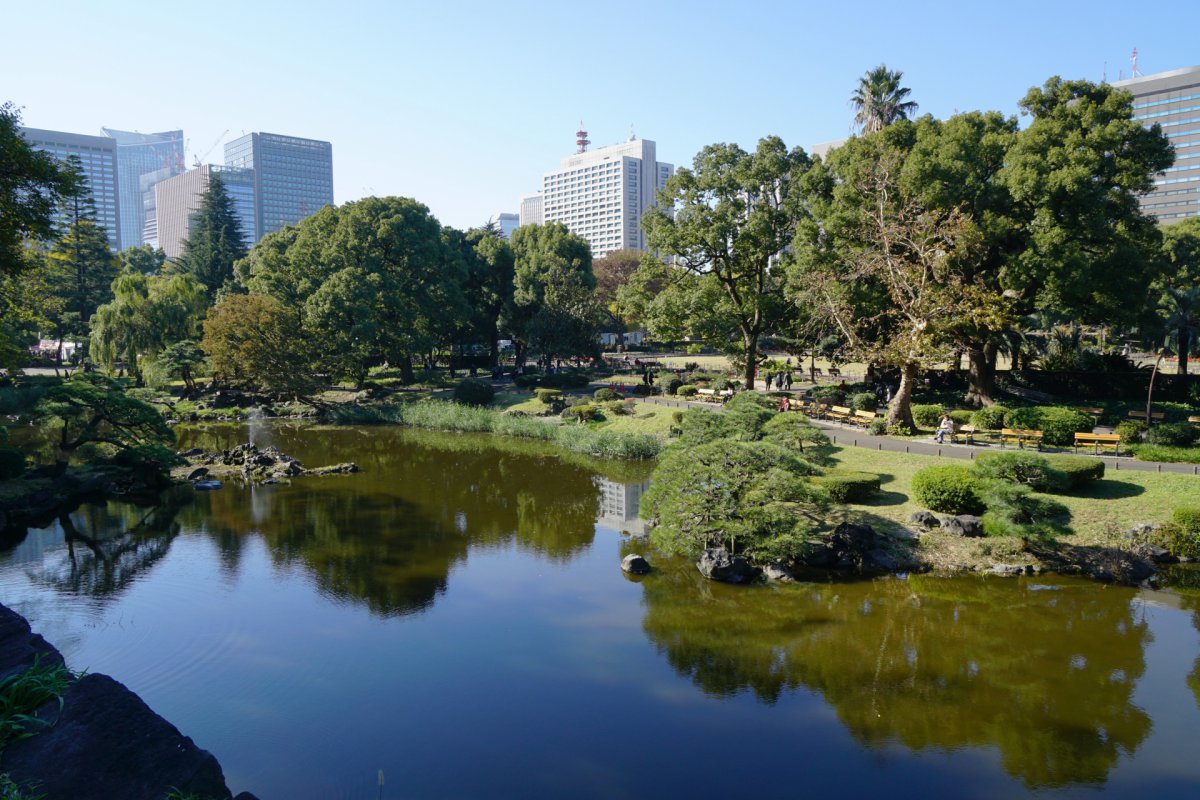
How to go to Hibiya Park
A short walk from Kasumigaseki Station exit B2, Hibiya Station exits A10 or A14, or Yurakucho Station Exit B2.
8. Shiba Park
Shiba Park is divided into a number of separate areas and located around the Tokyo Tower and Zojoji Temple. Established in 1873, the park is one of the oldest parks in Japan and is still home to several ancient trees including a giant ginkgo tree.
Several lawn areas of the park are popular at lunchtime with mothers and children and people working nearby.
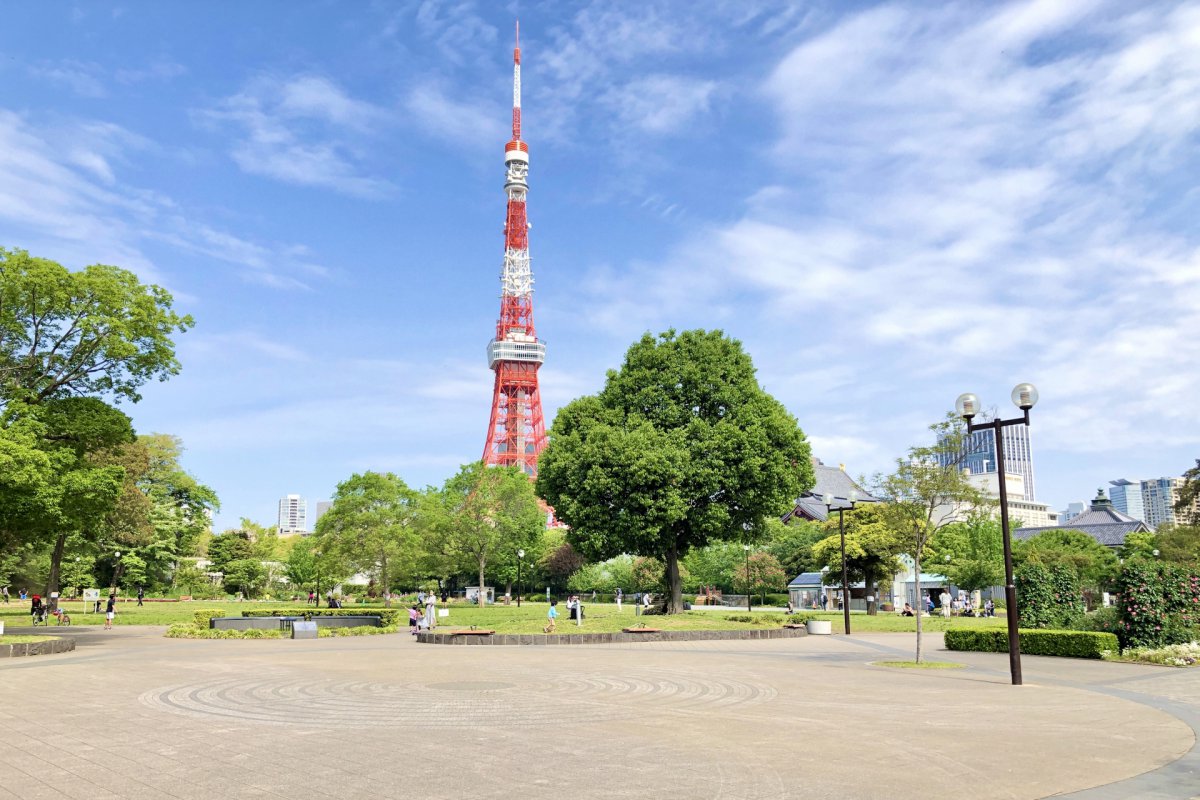
How to go to Shiba Park
A short walk from ShibaKoen Station and Onarimon Station, Akabanebashi Station and Daimon Station.
9. Koganei Park
This is one of the largest parks in the Tokyo metropolitan area and has nearly 2,000 cherry trees. You can explore the park by a rental bicycle (100 to 200 yen per hour). The park is a popular spot for cherry blossom viewing in spring and for various outdoor activities including turf sledding, barbeques, and cycling.
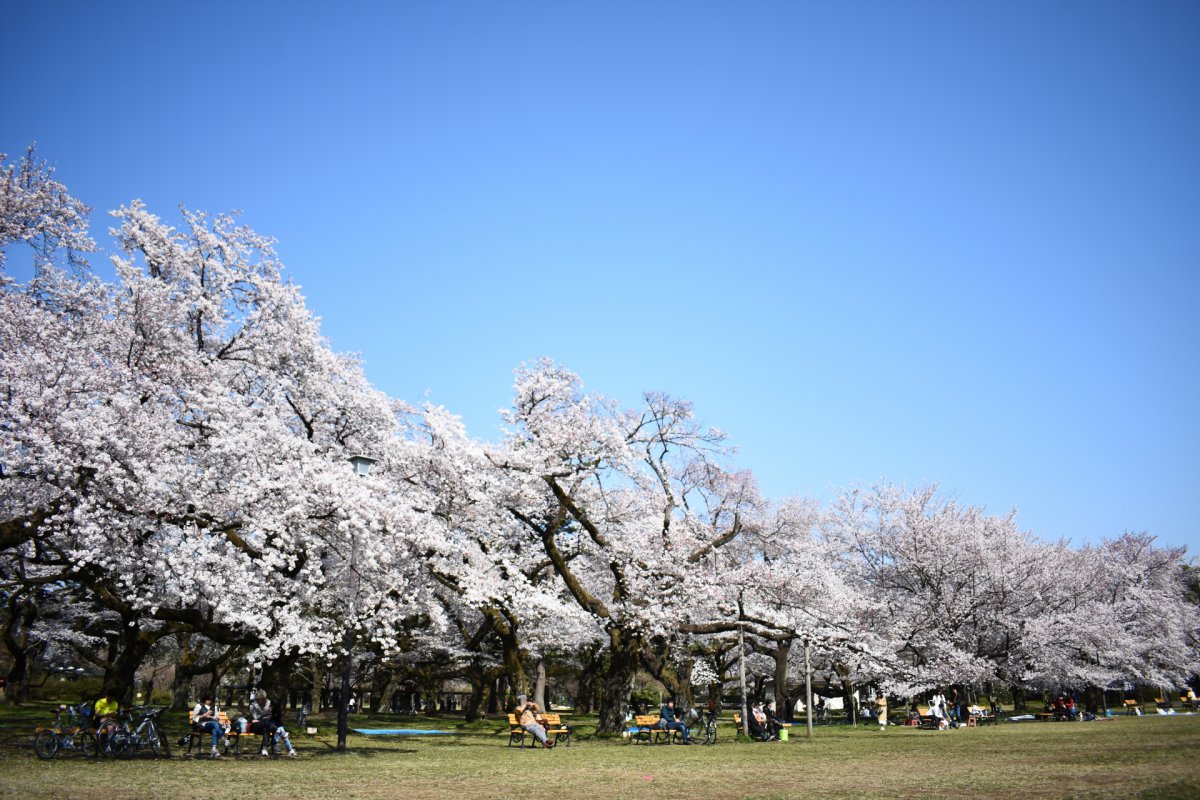
The park features the Edo-Tokyo Open Air Architectural Museum, opened in 1993, which exhibits buildings characteristic to different historical periods and those built by famous Japanese architects.
How to get to Koganei Park
5 minute by bus from Musashi Koganei station
10. Toneri Park
Located in Adachi ward in northeast Tokyo, Toneri Park is one of the biggest parks in Tokyo which opened in 1981 to commemorate the 50th anniversary of Emperor Hiroto’s ascension who was the emperor of the Showa Period.
The park features an extensive range of sport facilities including an athletic field, tennis courts, a baseball field and playground with a soccer field for children. From spring through autumn you can enjoy barbeques, camping, fishing and more activities.
How to go to Toneri park
A short walk from Toneri Koen station
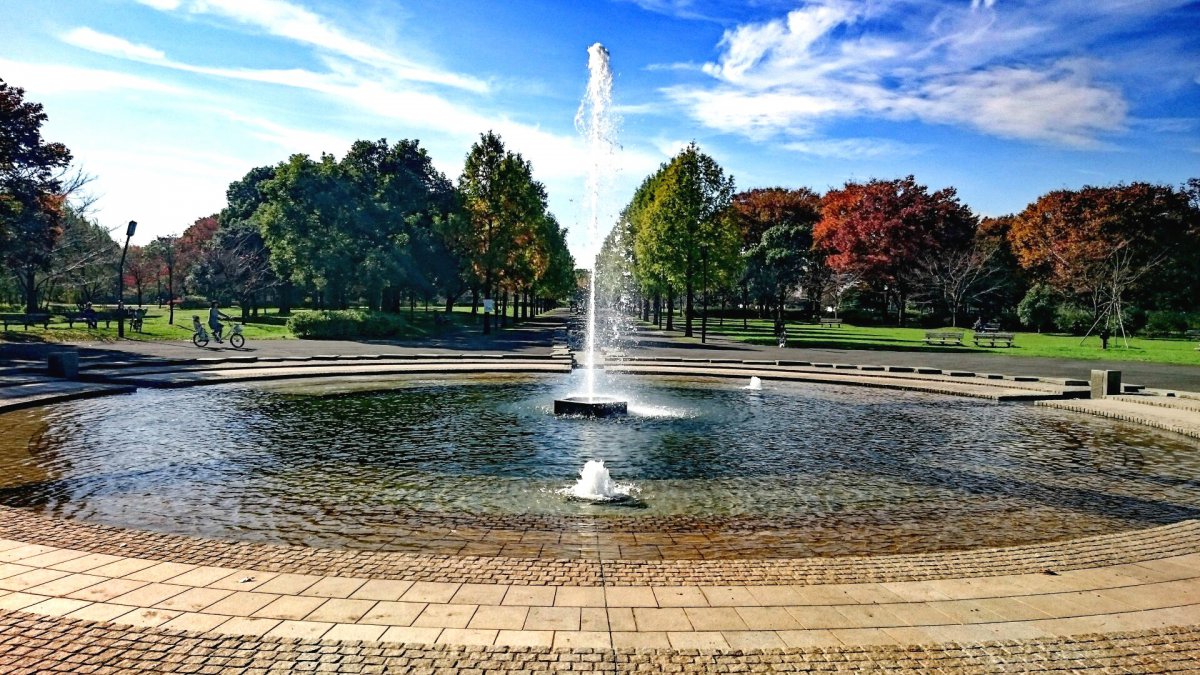
What did you think about parks in Tokyo? There are many more large and small parks in Tokyo where you can escape the busy city life of Tokyo, enjoy outdoor activities or spend relaxing time sitting down in the grass or park benches.
If you are interested in learning more about the city parks and the places that can be seen there, we advise you to join a guided tour. We are happy to show you around! To receive more information about guided tours in Tokyo or other parts of Japan, please visit our website. We hope you have a good time in Japan! Follow us on Instagram or Facebook for more travel inspiration. Or tag us to get featured!
Happy travelling!
This post contains some affiliate links. When you click through and make a purchase we may receive some commission, at no extra costs to you.
Japan Wonder Travel Tours in Tokyo
Japan Wonder Travel is a travel agency that offers guided tours throughout Japan.
From private walking tours to delicious Food and Drink tours, we can help organize the best tours just for you! If you want to explore Japan and learn more about the history and backstories of each area you are traveling in, our knowledgeable and friendly guides will happily take you to the best spots!
In addition, we can provide you with any assistance you may need for your upcoming trip to Japan, so please feel free to contact us if you have any questions or need some help!
▶Tokyo Tsukiji Fish Market Food and Drink Tour
Explore the most lively and popular fish market in Tokyo, where you will have the chance to try some of the local’s favorite street foods and sake along with your friendly English-speaking guide!

▶Tokyo 1–Day Highlights Private Walking Tour (8 Hours)
There’s no better way to explore an area than taking a tour with a knowledgeable local guide. You will have the chance to learn about the history and interesting background stories of Tokyo, as well as discover some hidden gems which can be hard to do without a guide.
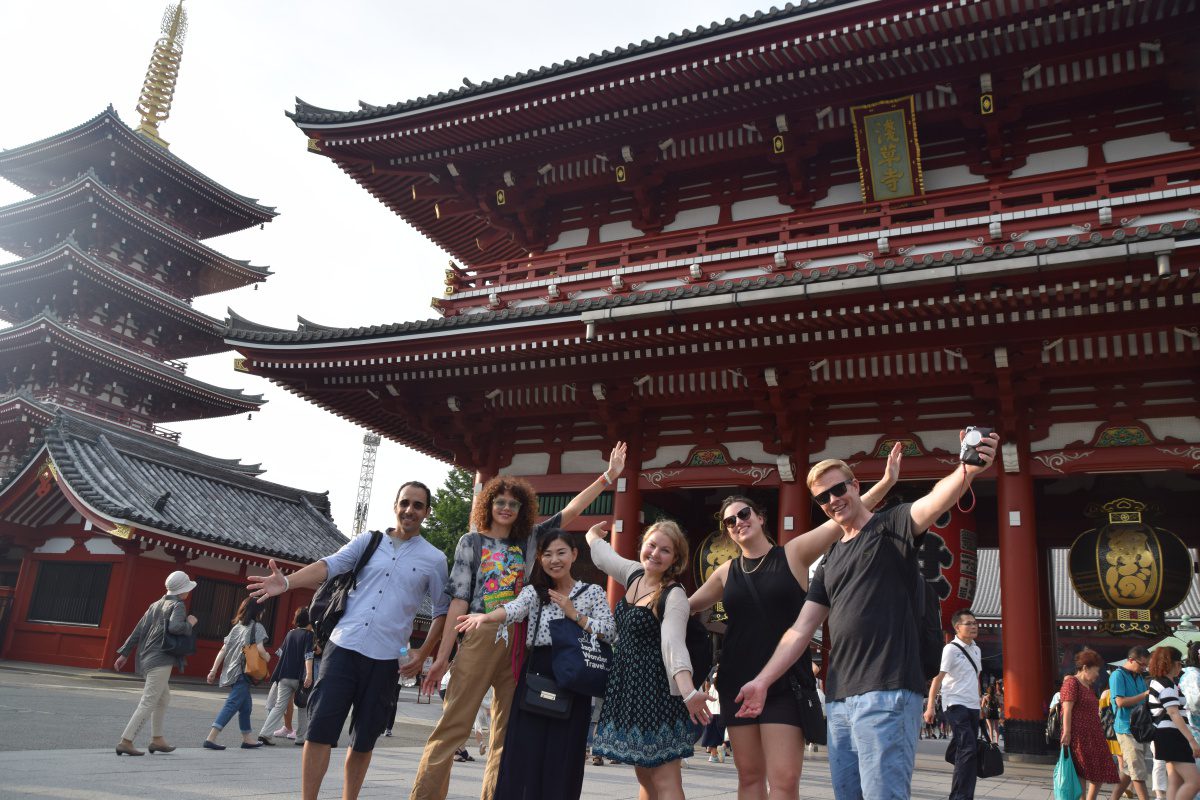
▶Shinjuku Bar Hopping Tour: Experience Tokyo’s Nightlife in Izakaya
Check out the best spots in Shinjuku while bar hopping through the lively and vibrant area. Try some delicious local food and drink as you explore the narrow yet photogenic alleys that the town has to offer. Experience Japanese izakaya culture and drink in Shinjuku like the locals!
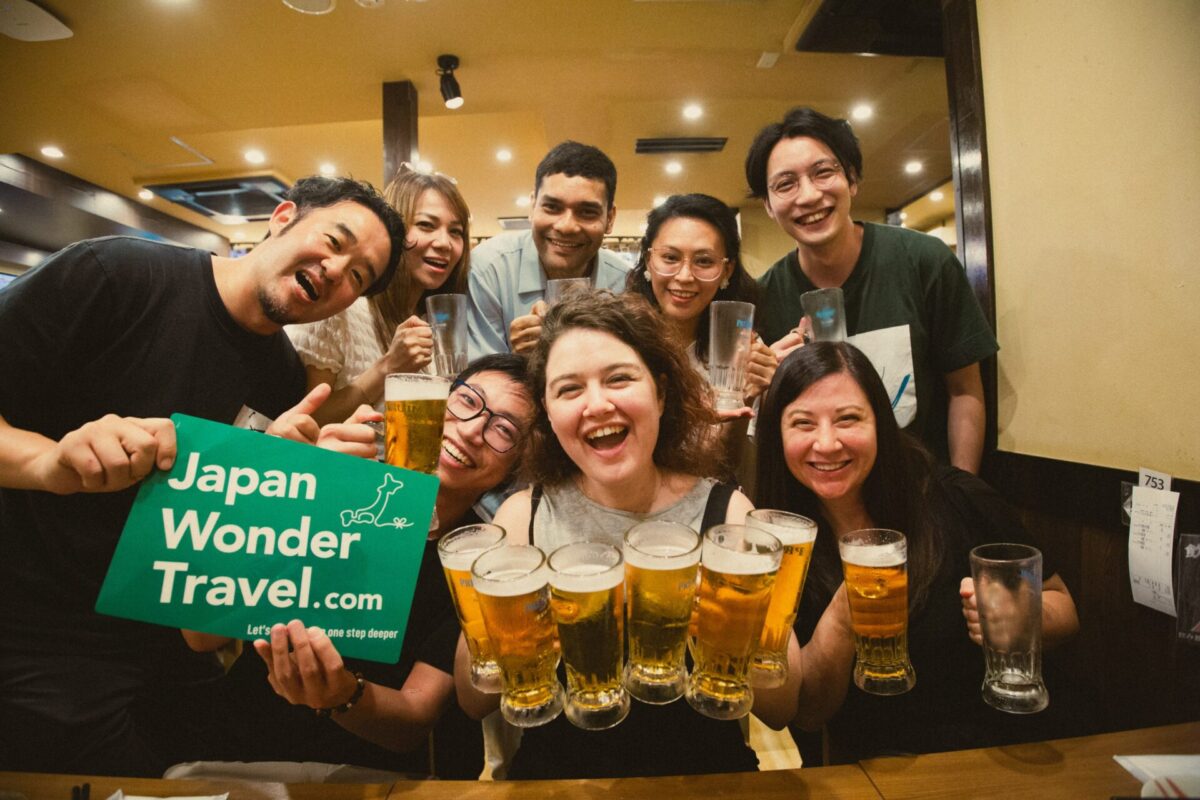
▶Kimono Experience in Tokyo
Step into the charm of the kimono, a beloved icon of Japanese tradition, ideal for festivals and wandering quaint streets. Asakusa offers the perfect setting to don your kimono and create cherished memories with picturesque backdrops. Let Kimono Rental Wargo dress you up for a day of delightful exploration in timeless style!
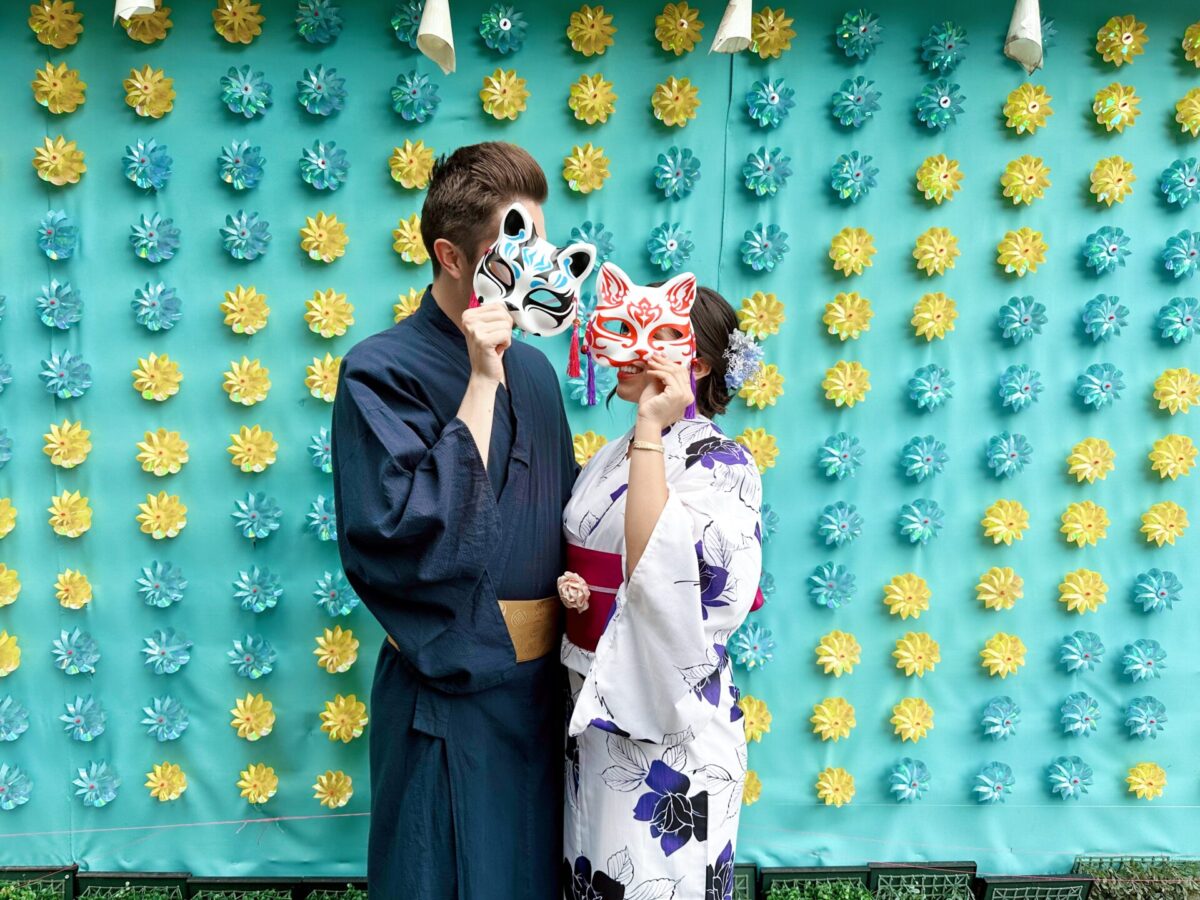
Other blogs you may like


